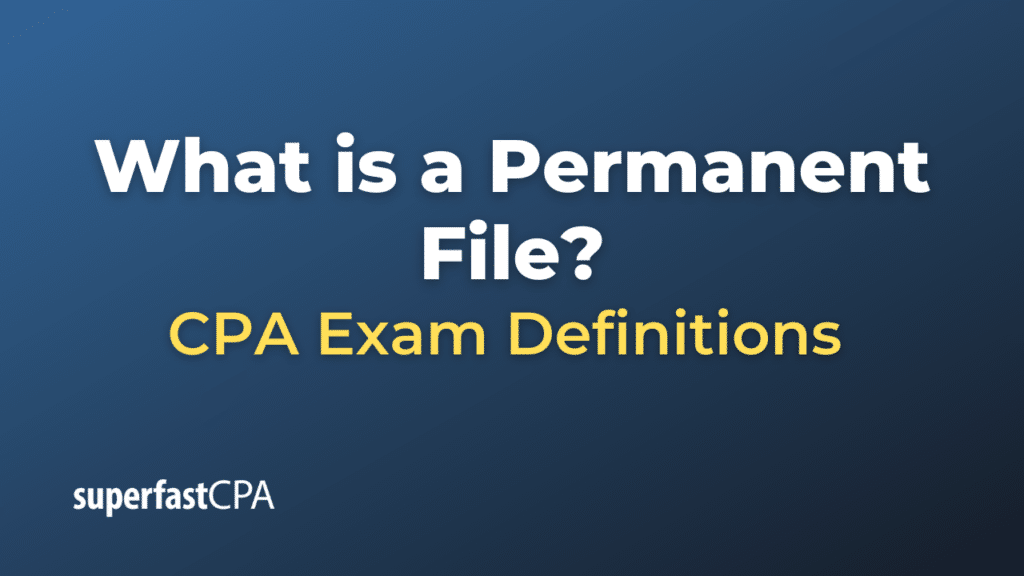Permanent File
A permanent file, in the context of accounting and auditing, is a type of file that contains important information of a lasting nature about a company that an auditor would need to refer to year after year. This is in contrast to a current file which only contains information pertinent to the current year’s audit.
Permanent files typically include:
- Legal Documents: Articles of incorporation, bylaws, minutes of board meetings, contracts, leases, and other legal documents.
- Accounting and Auditing Policies: Details of the company’s significant accounting and auditing policies, methods of depreciation and amortization, inventory pricing, etc.
- Detailed Information on Fixed Assets: This may include a detailed schedule of fixed assets, their locations, and cost and accumulated depreciation.
- Information on Business: This can include the history of the business, organizational charts, details of key management personnel, etc.
- Prior Years’ Financial Statements: Audited financial statements of prior years for reference and comparison.
- Tax Information: Details of tax assessments, tax disputes and resolutions, and tax planning strategies.
- Details of Major Transactions: Major transactions such as mergers and acquisitions, issue of shares or debentures, etc.
The information in a permanent file needs to be updated as and when significant changes occur, such as changes to a company’s legal status, accounting policy changes, changes in ownership structure, etc.
The purpose of a permanent file is to allow the auditor to quickly familiarize themselves with the business from year to year, and to provide a historical record of the business that might have an impact on its current and future financial position.
Example of a Permanent File
The auditors of XYZ Inc. would keep a permanent file for the company that contains the following information:
- Legal Documents: The Articles of Incorporation, bylaws of the company, and minutes from previous years’ board meetings. This also includes significant legal contracts like a lease agreement for the company’s head office or a joint venture agreement with another company.
- Accounting Policies: Detailed description of the company’s accounting policies, such as the methods they use for depreciation (straight-line, declining balance, etc.), how they recognize revenue, and their policies for valuing inventory.
- Fixed Assets Information : A detailed register of the company’s fixed assets, including cost and accumulated depreciation for each asset, their locations, and their estimated useful lives.
- Business Information: An organizational chart showing the company’s management structure, a list of key executives, and a brief history of the company.
- Previous Years’ Financial Statements: Audited financial statements from prior years, for reference and comparison.
- Tax Information : Details of the company’s past tax assessments, ongoing tax disputes, and documentation of any tax planning strategies the company is employing.
- Major Transactions : Documentation related to significant transactions such as recent acquisitions, sales of significant assets, or issuance of shares or bonds.
This permanent file would be updated regularly as new information becomes available or when significant changes occur in the company’s operations or structure. This file would serve as a reference point for the auditors in the current year and in future years, providing them with a historical perspective and context to better understand the company’s financial statements.













